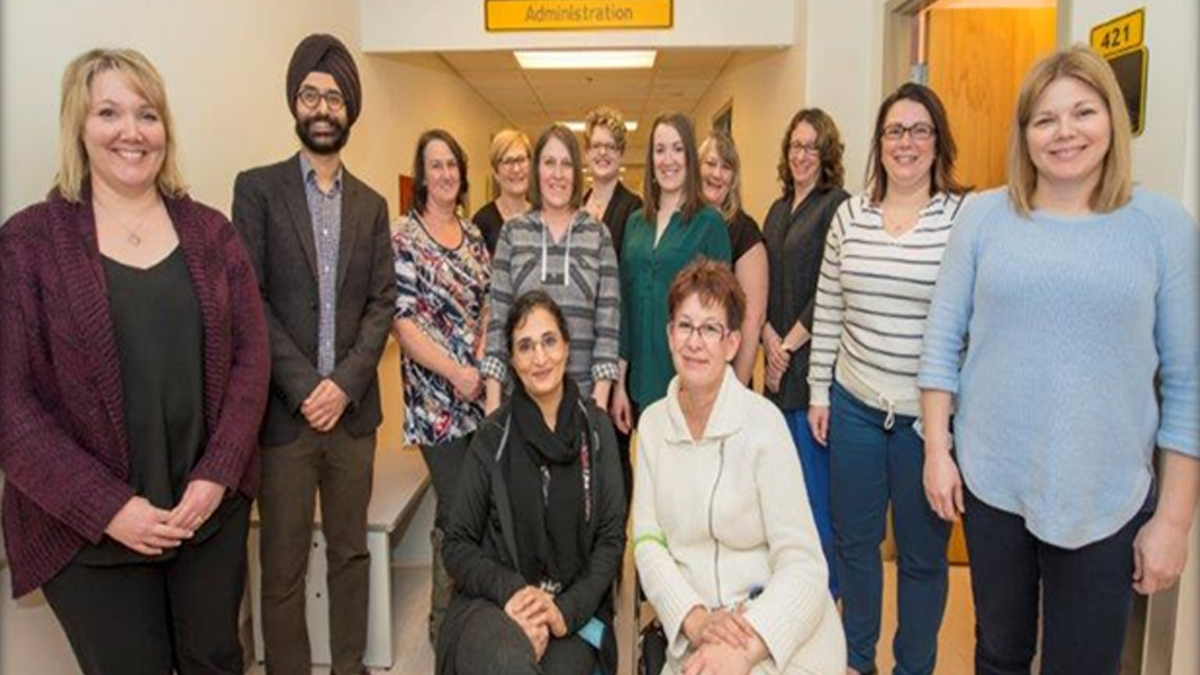- 2020
|
- Runner-Up
|
- Living with Illness or Disability
This award was formerly named “Living with Illness”. Our Excellence in Quality category names changed in 2020 to reflect the updates to our BC Health Quality Matrix. Visit our Categories and Criteria page to find out more.
Northern BC covers an area about the size of France, which means many patients need to travel long distances for appointments and often face poor weather when doing so. These factors, along with physician supply challenges, can make it difficult to offer timely care for kidney disease, putting patients at risk for chronic conditions such as diabetes, hypertension, high cholesterol or depression. A lack of appropriate, timely and organized interventions is attributed to many of the poor health outcomes for people living with chronic kidney disease in the region.
So Northern Health’s regional kidney care team decided to use telehealth to improve access to care for patients who live across the region. The program team proposed a “tele-kidney care project,” which would be supported by the Specialist Services Committee and see patients visit local health care facilities to meet with the kidney care team via a television screen (remote video link).
A project steering committee was formed and included clinical kidney care team members, management, physicians, IT/telehealth management and a patient. They then participated in patient journey mapping, a situation analysis and Lean events to understand scheduling and telehealth appointments within the clinic’s workflow.
Next the project team worked with the clinicians to develop a centralized referral pathway for kidney consultation, and used feedback from patients and providers to inform the design of the telehealth rooms and equipment used. Once the project launched, patient stories and evaluation updates were provided frequently to share successes and maintain awareness and commitment to the project.
From 2016 to 2019, patient referrals and enrollment in the clinic grew by 25-30%, an increase mostly attributable to appointments via telehealth. Over 70% of telehealth visits were for patients living further than 250 kilometres from the clinic. To date, people have been able to receive care in more than 25 rural and remote communities thanks to the project.
The team also piloted and perfected educational seminars for patients over telehealth which have received positive feedback from primary care providers who appreciate the service, communication and ongoing support offered by the team members and nephrologists. Data shows that patients are now more likely to be referred to a nephrologist or to the kidney clinic at an earlier stage of kidney disease, to choose home dialysis and to report better quality of life and overall experience of health care.
Additionally, patients perceive huge value of reduced travel and are highly satisfied with the quality of care. On average, a patient seen by telehealth travels 839 fewer kilometres and saves $375 in costs compared to before the program was launched. Less travel means that the program reduces carbon emissions by the equivalent of more than 40 vehicles’ annual driving.
The project has developed a template for expanding to additional sites, as well as the capacity, infrastructure and organizational commitment to sustain its improvements. The team has also provided education and resources to the First Nations Health Authority and the Canadian Foundation for Healthcare Improvement so that others can improve or build their own telehealth programs.


